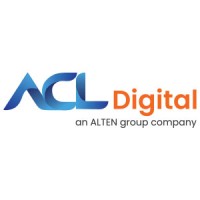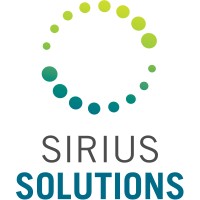

Sr. DevOps Engineer
⭐ - Featured Role | Apply direct with Data Freelance Hub
This role is for a Sr. DevOps Engineer, 100% remote, with a contract length of "unknown" and a pay rate of "unknown." Key skills include GCP, AWS, Azure, IaC (Terraform), and security compliance (FedRAMP). Strong communication and independent work skills required.
🌎 - Country
United States
💱 - Currency
$ USD
-
💰 - Day rate
-
🗓️ - Date discovered
August 28, 2025
🕒 - Project duration
Unknown
-
🏝️ - Location type
Remote
-
📄 - Contract type
Unknown
-
🔒 - Security clearance
Unknown
-
📍 - Location detailed
Boston, MA
-
🧠 - Skills detailed
#DevOps #Terraform #Data Integrity #Automation #Logging #Scala #Compliance #Monitoring #Azure #Disaster Recovery #Database Performance #Leadership #Web Services #Documentation #Cloud #Infrastructure as Code (IaC) #GCP (Google Cloud Platform) #Base #AWS (Amazon Web Services) #Observability #Microsoft Azure #GitLab #Deployment #Security
Role description
Title: Sr. DevOps Engineer
Location: 100% Remote
Job Description:
Summary:
The Senior DevOps Engineer, a key member of the EIT DevOps Team, is responsible for the staging and production infrastructure of Digital Services within the federal sector. This role is pivotal in managing and optimizing staging and production deployment environments across Google Cloud Platform (GCP), Amazon Web Services (AWS), and Microsoft Azure.
Core responsibilities include provisioning and maintaining secure, scalable, and robust cloud infrastructure for the InSight DXP Platform. The Senior DevOps Engineer will apply extensive knowledge of cloud services and DevOps best practices to ensure application efficiency, high availability, and performance.
Additionally, this role involves creating and maintaining FedRAMP controls and documentation compliance. The Senior DevOps Engineer will execute automation pipelines, upgrade infrastructure, troubleshoot complex issues, and contribute to the ongoing enhancement of deployment processes. Close collaboration with development, operations, and other EIT teams is crucial for delivering seamless and reliable solutions.
Core Responsibilities:
• Cloud Infrastructure Management: Deploy, manage, and maintain cloud infrastructure across AWS, Azure, and/or GCP, ensuring compliance for government workloads.
• Infrastructure Automation: Automate infrastructure provisioning using Infrastructure as Code (IaC) tools like Terraform, OpenTofu, or AWS CloudFormation.
• Deployment Pipeline Streamlining: Collaborate with development teams to streamline CI/CD pipelines using tools such as GitLab and OpenTofu for efficient infrastructure and application delivery.
• Performance Optimization: Monitor system performance, participate in capacity planning, and optimize application and infrastructure performance by tuning configurations and identifying bottlenecks.
• Automation Development: Develop scripts and tools to automate routine operations, including patching, scaling, and monitoring.
• Self-Healing Systems: Design and implement self-healing systems that proactively detect and resolve faults.
• Data Integrity & Availability: Manage backup and disaster recovery strategies to ensure data integrity and availability across environments.
• Security & Compliance: Perform regular security audits and vulnerability patching, adhering to government compliance requirements (e.g., FedRAMP, NIST).
Incident Management & Observability:
• Real-time Incident Resolution: Respond to and resolve infrastructure incidents and outages in real-time, minimizing disruption.
• Root Cause Analysis (RCA): Conduct RCA for production issues and implement long-term corrective actions.
• On-Call Participation: Participate in an on-call rotation, escalating and coordinating responses to high-severity issues.
• Incident Documentation: Document incidents, responses, and postmortems to capture lessons learned.
• Complex Problem Diagnosis: Diagnose complex infrastructure and application problems, including database performance issues, latency, and service connectivity challenges.
• Comprehensive Logging & Telemetry: Ensure comprehensive logging and telemetry to support incident response, performance tuning, and auditing.
• Observability Improvements: Drive observability improvements by collaborating with Engineering and Platform teams to enhance system reliability and traceability.
Application & Knowledge Management:
• Application Incident Leadership: Lead resolution efforts for application-level incidents, ensuring coordinated response across teams.
• Application Lifecycle Management: Oversee application lifecycle management, including version upgrades, security patches, and regional rollouts.
• Knowledge Base Contribution: Contribute to a shared knowledge base, documenting recurring issues and resolution steps.
• Scaling Strategies: Support scaling strategies to meet regional demand, ensuring infrastructure resilience and compliance with service-level objectives (SLOs).
• Strong written and verbal communication skills, with the ability to clearly document procedures, incidents, and solutions.
• Effective at producing support documentation and conducting knowledge transfer or training sessions.
• Demonstrated ability to work independently with minimal supervision in a fast-paced, collaborative, and globally distributed team.
• A motivated, proactive mindset with a commitment to delivering high-quality, secure, and reliable systems.
Title: Sr. DevOps Engineer
Location: 100% Remote
Job Description:
Summary:
The Senior DevOps Engineer, a key member of the EIT DevOps Team, is responsible for the staging and production infrastructure of Digital Services within the federal sector. This role is pivotal in managing and optimizing staging and production deployment environments across Google Cloud Platform (GCP), Amazon Web Services (AWS), and Microsoft Azure.
Core responsibilities include provisioning and maintaining secure, scalable, and robust cloud infrastructure for the InSight DXP Platform. The Senior DevOps Engineer will apply extensive knowledge of cloud services and DevOps best practices to ensure application efficiency, high availability, and performance.
Additionally, this role involves creating and maintaining FedRAMP controls and documentation compliance. The Senior DevOps Engineer will execute automation pipelines, upgrade infrastructure, troubleshoot complex issues, and contribute to the ongoing enhancement of deployment processes. Close collaboration with development, operations, and other EIT teams is crucial for delivering seamless and reliable solutions.
Core Responsibilities:
• Cloud Infrastructure Management: Deploy, manage, and maintain cloud infrastructure across AWS, Azure, and/or GCP, ensuring compliance for government workloads.
• Infrastructure Automation: Automate infrastructure provisioning using Infrastructure as Code (IaC) tools like Terraform, OpenTofu, or AWS CloudFormation.
• Deployment Pipeline Streamlining: Collaborate with development teams to streamline CI/CD pipelines using tools such as GitLab and OpenTofu for efficient infrastructure and application delivery.
• Performance Optimization: Monitor system performance, participate in capacity planning, and optimize application and infrastructure performance by tuning configurations and identifying bottlenecks.
• Automation Development: Develop scripts and tools to automate routine operations, including patching, scaling, and monitoring.
• Self-Healing Systems: Design and implement self-healing systems that proactively detect and resolve faults.
• Data Integrity & Availability: Manage backup and disaster recovery strategies to ensure data integrity and availability across environments.
• Security & Compliance: Perform regular security audits and vulnerability patching, adhering to government compliance requirements (e.g., FedRAMP, NIST).
Incident Management & Observability:
• Real-time Incident Resolution: Respond to and resolve infrastructure incidents and outages in real-time, minimizing disruption.
• Root Cause Analysis (RCA): Conduct RCA for production issues and implement long-term corrective actions.
• On-Call Participation: Participate in an on-call rotation, escalating and coordinating responses to high-severity issues.
• Incident Documentation: Document incidents, responses, and postmortems to capture lessons learned.
• Complex Problem Diagnosis: Diagnose complex infrastructure and application problems, including database performance issues, latency, and service connectivity challenges.
• Comprehensive Logging & Telemetry: Ensure comprehensive logging and telemetry to support incident response, performance tuning, and auditing.
• Observability Improvements: Drive observability improvements by collaborating with Engineering and Platform teams to enhance system reliability and traceability.
Application & Knowledge Management:
• Application Incident Leadership: Lead resolution efforts for application-level incidents, ensuring coordinated response across teams.
• Application Lifecycle Management: Oversee application lifecycle management, including version upgrades, security patches, and regional rollouts.
• Knowledge Base Contribution: Contribute to a shared knowledge base, documenting recurring issues and resolution steps.
• Scaling Strategies: Support scaling strategies to meet regional demand, ensuring infrastructure resilience and compliance with service-level objectives (SLOs).
• Strong written and verbal communication skills, with the ability to clearly document procedures, incidents, and solutions.
• Effective at producing support documentation and conducting knowledge transfer or training sessions.
• Demonstrated ability to work independently with minimal supervision in a fast-paced, collaborative, and globally distributed team.
• A motivated, proactive mindset with a commitment to delivering high-quality, secure, and reliable systems.






